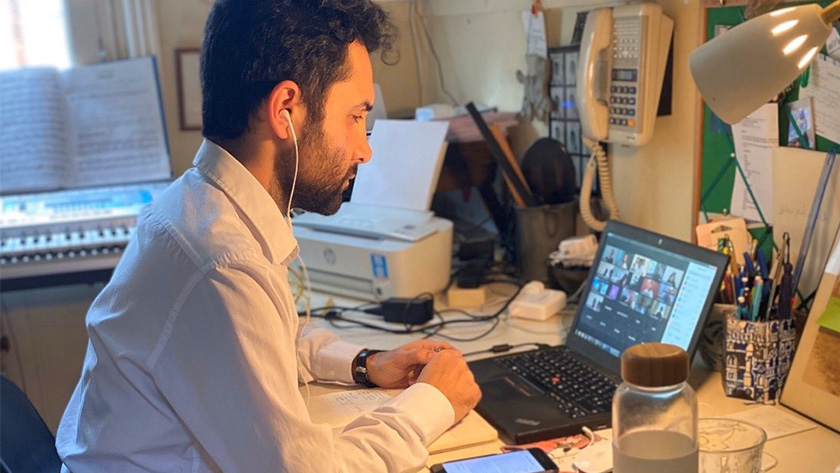When Estonia held the rotating presidency of the UN Security Council in May, it hosted the largest high-level gathering of UN Member States since the beginning of the COVID-19 crisis. Eighty countries took part, fifty at a ministerial level, to mark the 75th anniversary of VE Day. And it all took place virtually. This is happening throughout all levels of diplomacy—when physical meetings are impossible, technology must step in to bridge the gap.
Independent Diplomat works with non-state parties, communities, and small countries across the world that traditional diplomacy marginalizes. The corridors of power at the UN and elsewhere often exclude them from discussion about their own future. The cost and time of travelling to New York, as well as visa issues, typically become prohibitive, limiting proximity between the diplomats and these local communities. This leads to bad international policy-making. In conflict situations, it might result in outcomes that are detached from the realities on the ground and fail to lead to lasting peace.
Diplomats have pushed back on the idea of using more technology in their work processes for years. Negotiation relies on empathy and natural communication which can become more complicated online—especially since many of the real conversations happen in the hallways and during the coffee breaks outside the formal proceedings. Additionally, cyber security concerns add fears that discussions might not remain private. Many agreements rely on negotiation tactics and positions that states are keen to keep from the public eye—for a number of valid reasons. Discussing them virtually adds a layer of uncertainty few will find welcome.

Independent Diplomat has supported its partners in making the most of our new reality. We have worked with the Southern Transitional Council (STC) in Yemen to virtually brief humanitarian organisations, NGOs and governments of the rapidly changing situation in the country. This has allowed the international community to hear a much broader range of perspectives from the ground, including from hospitals in Aden. While these are in their essence only simple video conferences, they mark a shift in how we approach diplomacy.
Accepting that video briefings and the remote inclusion of stakeholders is now a new normal, the international community should not revert to its previous working methods.
The only way to build inclusivity in diplomacy is to accept new means of communication and to adopt the new safety and security protocols that come with it. Using encrypted channels, good access controls and cyber hygiene will go a long way towards managing any risks associated with virtual diplomacy and provide proof that it can be done securely. While video conferencing is not new and the technology has been available to diplomats for a very long time, they’ve rarely been used to improve equity and inclusivity. As we adopt video conferencing and become accustomed to these new security protocols, the riskiness associated with virtual diplomacy will begin to dissipate.
3.6 billion people globally remain offline. While Africa has the fastest growing number of internet users, large parts of the world cannot meaningfully get online. Access to the internet is a basic necessity for economic and human development. The World Bank has linked internet access to better education and healthcare outcomes, improved economic prospects, increased opportunities for women’s empowerment, and a push for transparency and better governance. Governments, international organisations, NGOs, private companies, and the philanthropic community have to work together to support this development.
Marginalised groups—especially in conflict situations—often see access to technology and the internet as an important tool in helping them navigate complex situations. Peacetech can, for example, help them monitor flare-ups of violence, record evidence of use of force and treaty violations, and provide advance warnings to geographically dispersed communities.
As we build on the experiences of the last few months to continue the path of innovation in diplomacy, access to the internet will become even more important.
Let’s not wait for the next global crisis to push through more innovation. Accepting technology as part of the diplomatic process is now the status quo and it’s time to build on this. Perhaps technology can help democratise diplomacy even further. To bridge these gaps in access to technology and the internet, will require much international cooperation and support. The societal, economic, and indeed the diplomatic gains will be well worth the effort.
Header image credit: Estonian Foreign Ministry || 80 countries at a high-level UNSC discussion about the legacy of WWII
Want more stories of transformational change on the world’s most pressing problems? Sign up for Skoll Foundation’s monthly newsletter.